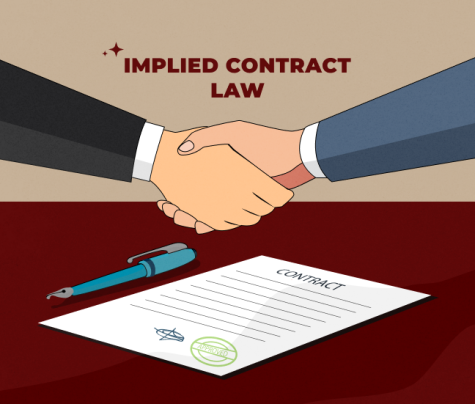
We promise to uphold specific responsibilities when we sign a contract. However, have you ever considered whether or not those promises can be made by anybody legally? In contract law, this is where contractual capacity enters the picture.
It’s like a permission slip for contracts. People must be able to legally enter into contracts, just as they need permission to go on field trips.
Contractual capacity guarantees that an individual is legally and psychologically capable of signing a contract. A key component of contract law is its ability to shield parties from unjust agreements.
In this blog, I will explain contractual capacity and discuss who does not possess it. I’ll also go over how it affects legal agreements and contracts.
So, if that is what you want to know, I have you covered! Keep on reading this blog till the end to learn more…
What is Capacity in Contract Law?

The legal ability to enter into a contract is known as contractual capacity. It denotes that a person can enter into a contract and understand its terms and conditions legally and mentally.1
Put differently, in legal terms, the capacity to make a promise matters. Consider it analogous to a driver’s license.
Similar to how a driver’s license certifies your ability to operate a motor vehicle, contractual capacity certifies your ability to sign contracts.
It indicates that you can make wise decisions and know your agreement.
Contractual capacity involves two main things:
- Mental capacity: You can think clearly and make rational decisions. You must understand the contract’s terms and what they mean.
- Legal competence: You must be of legal age (usually 18 or older) and not have any legal disabilities that would prevent you from contracting.
Having contractual capacity is essential because it ensures that contracts are fair and binding. It protects both parties from unfair agreements and ensures everyone knows what they’re getting into.
Key Elements of Contract
You need to first understand the elements of a contract to fully understand what is capacity in law of contract.
These are the building blocks of any contract. These elements are what make the agreement legally binding. This means that the absence of any one of the elements can make it unenforceable and void.
The key elements of contract law are:
- Offer: One party must promise or propose to another party. This is like extending an invitation.
- Acceptance: The other party must accept the offer. This is like RSVPing to the invitation.
- Consideration: Both parties must promise something of value, like money or services. This is like exchanging gifts.
- Contractual Capacity: As discussed earlier, both parties must have the legal ability to enter into a contract.
- Legality: The purpose of the contract must not be illegal or against public policy. This means the contract can’t be for something harmful or unlawful.
These elements are like the foundation of a building. Without them, the contract won’t be legally binding, and the parties won’t be obligated to fulfill their promises.
By understanding these essential elements, you can ensure that your contracts are solid and enforceable.
Additionally, in case of any breach of contract, it will be easier for the court to take legal action if the counterparty has contractual capacity.
Who has Legal Capacity in Contract Law?

So, can everyone enter into a contract? Does everyone have the contractual capacity to enter a specific contract?
The answer is NO. So, who can?
Here is a list and explanation of everyone who has the contractual capacity and is eligible to enter into a contract:
1. Adults
Firstly, all adults are eligible to get onto a contract. However, one must keep certain limitations and points in mind.
The person will have the capacity in contract law only if they are above 18. This is the case in most countries.
Additionally, those legally declared adults (emancipated minors) can enter a contract. At the same time, they must have the mental capacity to get into a contract.
2. Businesses
Secondly, businesses of all kinds are eligible for a contract and have the contractual capacity. All companies, corporations, or limited liability companies (LLCs) can agree.
Additionally, partnerships of all kinds (general and limited) and Sole proprietorships, which include all individuals operating a particular business, can enter into a contract.
Furthermore, when it comes to the authorized representatives for the contract, there is one thing that you must keep in mind.
Not anyone can agree on behalf of an organization. CEOs, managers, directors, people who hold a power of attorney, or others who the company has authorized to do so can sign an agreement.
For example, a company like Apple can contract with a supplier. Likewise, any law firm can agree with a client.
3. Government Entities
Last but not least, all government entities can enter into a contract. Agencies that are a part of the Federal Government, State Government, or even Local Government can enter an agreement as they have contractual capacity.
Additionally, several departments of the government can also do the same. For instance, education, transportation, and defense departments can all sign contracts.
In the case of government entities, the authorized representatives who can sign contracts are government officials such as ministers, directors, or secretaries.
Furthermore, authorized personnel, like contract and procurement officers, can also get into a contract.
For example, if a government agency contracts a contractor to develop a public work project, the agreement would be legally binding.
Lack of Legal Contractual Capacity

“If the above list states all kinds of people and entities who are eligible to enter into a contract, does that mean that there are ones who cannot do the same?”
Yes. That’s right! So, who are they? Let me explain it to you!
1. A Minor
Minor can legally enter into specific contracts, but they also have certain special legal protections that allow them to choose to enforce or void a contract.
As minors in the US, those under the age of 18 (in the majority of states) can revoke most contracts they enter into.
There are a few exceptions to this, like contracts for starting school or agreements for necessities that are thought to have reasonable terms.
Whether or not the contract is thought to benefit the minor is one of the most frequently used tests.
If so, there’s a good chance the agreement will be viewed as fair and unavoidable. However, a contract is more likely to be voidable if its terms aren’t especially advantageous to the minor or fair.
It’s also important to remember that minors may not be able to completely void the contract once they become adults and reach the age of majority.
This is because they are now legally considered adults and are, therefore, obligated to abide by contracts in the same manner as fully consenting minors.
2. Mentally Disable
A person may also not have the mental capacity to fulfill a contract if they are mentally incapable.
This means that if someone is deemed mentally incompetent, they can frequently void a contract themselves or have their guardian do so if they suffer from specific mental illnesses or psychological conditions.
There are various tests for this in different states. To determine mental and, thus, contractual capacity, many states, however, use the “appreciate effects” test.
This implies that they try to assess the person’s capacity for comprehension of the situation they were in and their ability to identify the consequences of that relationship.
The court usually makes the final determination regarding mental incompetence, regardless of how each state defines it.
3. Unauthorized People
The third and most typical scenario in which a contract is broken is when the party was not authorized to sign it (i.e., they lacked signatory authority).
Only some workers in an organization have the authority to sign contracts on behalf of their employer.
Typically, the company’s directors hold this authority, which is granted to them by the board through a resolution approved at a board meeting.
A big contract signed by someone without signatory authority on their company’s behalf may not be easy to enforce if that person lacks contractual capacity.
Sending the contract again and ensuring the correct person is asked to sign it is smart.
4. Being Intoxicated
A party may also be able to terminate the contract due to intoxication, but this will only happen in rare situations.
The court will consider the extent of the intoxication and the counterparty’s knowledge of it when determining whether it can undermine contractual capacity.2
For a contract to be voidable, generally speaking, the intoxicated party must attempt to rescind the contract within a reasonable amount of time after regaining full consciousness and realizing their error in entering it.
If not, the agreement will still be enforceable.
Wrapping It Up!
If you were searching for information about capacity in contract law, I hope that this blog has been of help to you. Remember that a contractual capacity is all about ensuring that the parties involved are legally competent to enter the contract.
Therefore, they must have a mental capacity to know and understand the contract and its terms. They should also be of legal age to enter into the contract.
If you can understand who has the contractual capacity to enter the contract, you will ensure that your contract is solid and enforceable.
If you have any other questions related to this, please feel free to let me know. All you need to do is scroll down until you reach the age’s bottom. Then, leave your comments in the box below. And I will be there to answer them all for you!
Citations:
- Legal Information Institute: It is an independently funded project of the Cornel Law School, which gathers and publishes legal information for the public. ↩︎
- Juro: Founded by software engineers and lawyers, Juro is a platform that helps readers with their actionable insight into legal processes. While it is a platform that helps curate contracts, its blogs are insightful, trustworthy, and easy to understand the complex legalese. ↩︎
Read Also:
- All You Need To Know About Contract Repository
- Undue Influence in Contract Law: What Does it Mean?
- Unconscionability in Contract Law: Legal Meaning Simplified!











0 Reply
No comments yet.